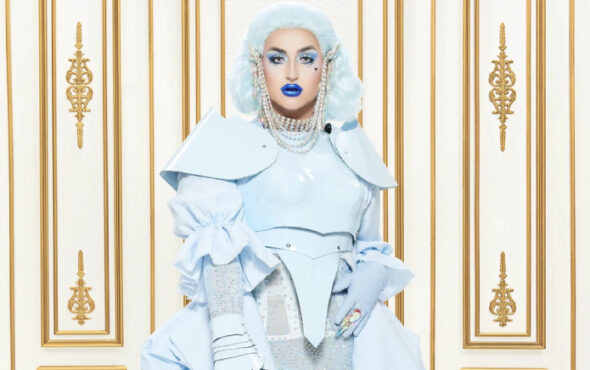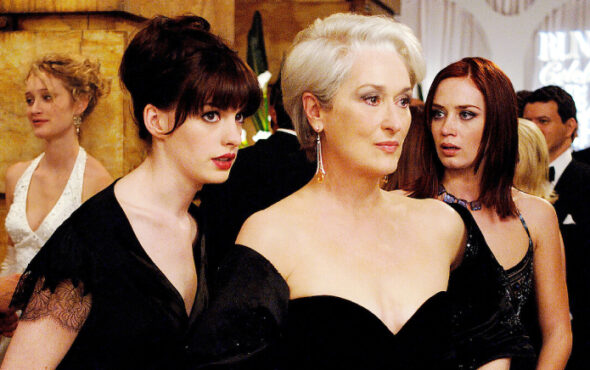
Boris Johnson has done a reshuffle of his cabinet, but what are their views on LGBTQ rights?
When any Prime Minister is elected, one of their first jobs is deciding their cabinet, and whose is in charge of what positions.
These Secretaries of States will have a range of duties, some of which will impact the lives of LGBTQ citizens, which is slightly alarming given that there aren’t any openly LGBTQ politicians in the cabinet, but plenty of those who have opposed LGBTQ rights. Most of Johnson’s appointees are from the 2010 intake, with some even coming from a 2014 by-election and the 2017 General Election.
Some have a mixed voting record when it comes to their stances on LGBTQ rights, but here is the new-look cabinet, and where they stand on LGBTQ issues.
Since this article was first published, there have been some changes, with former Cabinet members more in favour of LGBTQ rights leaving, and being replaced with those who are less in favour of LGBTQ rights.
As the Cabinet changes, this article will be updated to showcase the views of the latest appointees. Last updated on 15 February 2020.
Cabinet Ministers
Boris Johnson
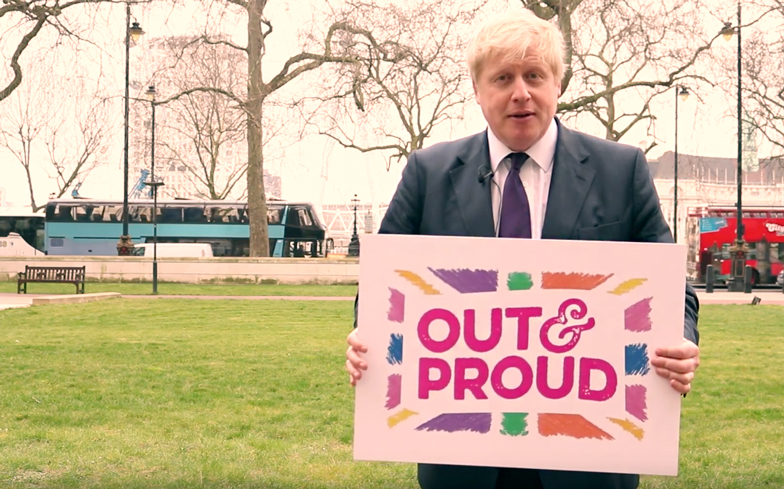
Role: Prime Minister
Constituency: Uxbridge and South Ruislip (since 2015); previously Henley (2001-2008)
As Prime Minister, Boris is in charge of all of our lives, and could be either a danger or an asset. When speaking, Boris is known for saying and writing homophobic things. In 1998 he referred to gay men as ‘tank-topped bumboys’, a comment he attempted to defend as satire, and wrote in 2001 that if gay marriage was OK, he saw “no reason” that marriage shouldn’t be allowed between “three men and a dog.”
He has refused to apologise for any of these comments, even on the recent election trail, as well as a myriad of racist and misogynistic comments.
In office, however, Boris does typically vote for LGBTQ rights. Although he wasn’t an MP when same-sex marriage was discussed, he did back civil partnerships, and voted in favour of repealing Section 28. At a hustings event, he spoke in favour of LGBTQ-inclusive education, although he didn’t speak as passionately as his then rival Jeremy Hunt on the issue.
“Schools should be asked to reflect the world as it is and, to be reasonable, that’s the way things are now,” he said.
However, he was absent when it came to issues surrounding trans rights, same-sex adoptions and the Equality Act.
Michael Gove

Role: Chancellor of the Duchy of Lancaster
Constituency: Surrey Heath (since 2005)
Michael Gove has a largely ceremonial role this time around, and will be looking into no-deal Brexit planning, hopefully he’ll look to make sure LGBTQ rights are protected.
If his record is anything to go by, he could very well do so. He voted in favour of the Equality Act and same-sex marriage, although was absent around votes surrounding other parts of the legislation. As Environment Secretary he backed a plan, which aimed to reduce the suicide rates of LGBTQ farmers, and as Justice Secretary he fired a magistrate opposed to same-sex adoption because of his religious beliefs.
On his support for same-sex marriage, he said: “It’s wrong to say that because of how you love and who you love, you are not entitled to the same rights as others. It’s wrong because inequality is wrong.”
Gove has also butted heads with Conservative MPs opposed to same-sex marriage. When questioned about implications for teachers over same-sex marriage, Gove said: “I don’t know any teachers who think: ‘You know what, in the next hour, as we discuss whatever it might be, my most important aim in my 60 minutes available to me with these young people is to explain why I think this is a pretend marriage’.”
Rishi Sunak

Role: Chancellor of the Exchequer
Constituency: Richmond (Yorks) (since 2015)
As Chancellor, Sunak won’t have much says in LGBTQ rights, and it’s difficult to say whether that’s a good or bad thing, as Sunak has remained silent when it comes to LGBTQ issues, other than abstaining on whether to extend same-sex marriage to Northern Ireland.
Dominic Raab
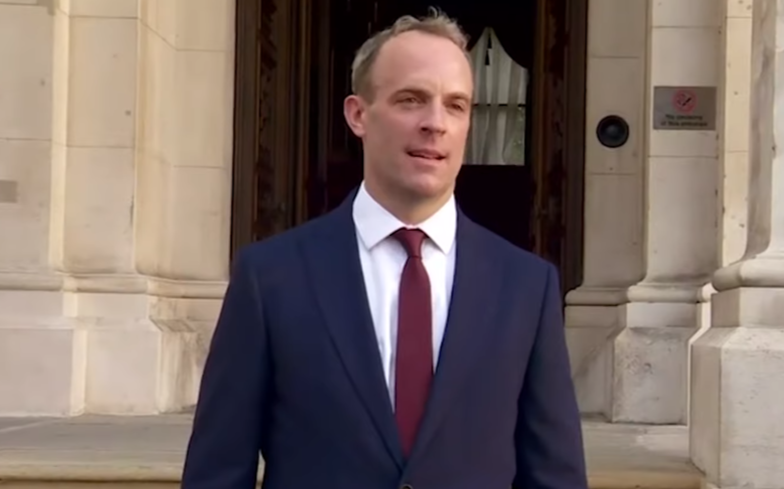
Role: Foreign Secretary and First Secretary of State
Constituency: Esher and Walton (since 2010)
As Foreign Secretary Dominic Raab will be conducting diplomacy with other countries. He also has rules over the Commonwealth, and can try and enforce polices there. Raab also has the de-facto PM role, for when Boris is out of the country.
Whether Dominic is an ally or not is difficult to say. He did vote in favour of same-sex marriage, missing one vote on making it available to armed forces, however when he was attempting to become Prime Minister he spoke out over trans rights. It should also be noted that Raab wanted to protect churches opposed to conducting ceremonies.
When asked about making it easier for trans people to change their legal gender, he said: “I certainly don’t think I want to make it easier. I think you need to be very careful with people of that age.” Raab said he wouldn’t call himself a feminist, and called some “obnoxious bigots.”
Priti Patel
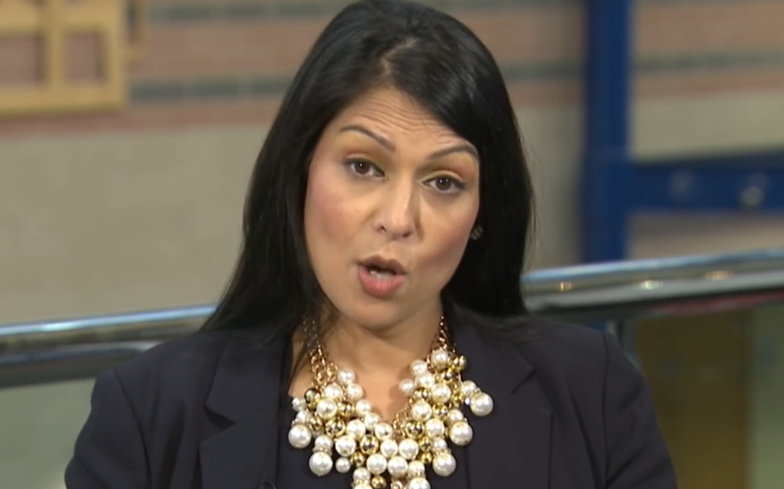
Role: Home Secretary
Constituency: Witham (since 2010)
With anti-LGBTQ violence on the rise in the UK, as well as having powers over whether gay asylum seekers can come here, it is worrying that Priti Patel has been appointed to this job.
Patel, who is viewed to be on the right of the party, voted against same-sex marriage when it was passing through the House of Commons. Meanwhile on other issues such as trans rights, and same-sex inclusive education she has remained relatively silent.
The phrase goes, ‘Actions speak louder than words’ and hopefully Patel will take actions to protect LGBTQ people both here, and fleeing anti-LGBTQ countries.
Robert Buckland

Role: Justice Secretary
Constituency: South Swindon (since 2010)
Robert Buckland has never voted in favour of LGBTQ rights. Following the passing of the same-sex marriage bill, Buckland told the Swindon Advertiser: “I’m disappointed that the Bill passed, but I have to accept that a majority voted for the bill and I’m a democrat like anybody else.”
Buckland also defended the government’s decision not to adopt the EU’s Charter of Fundamental Rights, which would’ve protected LGBTQ rights in the country after Brexit.
The MP has attended events like Swindon Pride, and pledged his support for them. In an LGBT Conservative leaflet, he wrote Pride was a “really enjoyable occasion where all members of the community, regardless of their sexuality, were able to get together and celebrate our societal values.”
Ben Wallace

Role: Defence Secretary
Constituency: Wyre and Preston North (since 2005)
Ben Wallace could be one of the most anti-LGBTQ politicians sat in Johnson’s cabinet. The man in charge of our defence, and army, has voted against every piece of LGBTQ legislation put in front of him, including voting against the Equality Act and same-sex marriage.
He also voted in favour of the Human Fertilisation and Embryology Bill, which would’ve made it harder for lesbian couples to conceive children through IVF, had it passed.
With the Army and Navy ranked highly when it comes to employing LGBTQ people, hopefully this will be able to continue with Wallace at the helm.
Matt Hancock
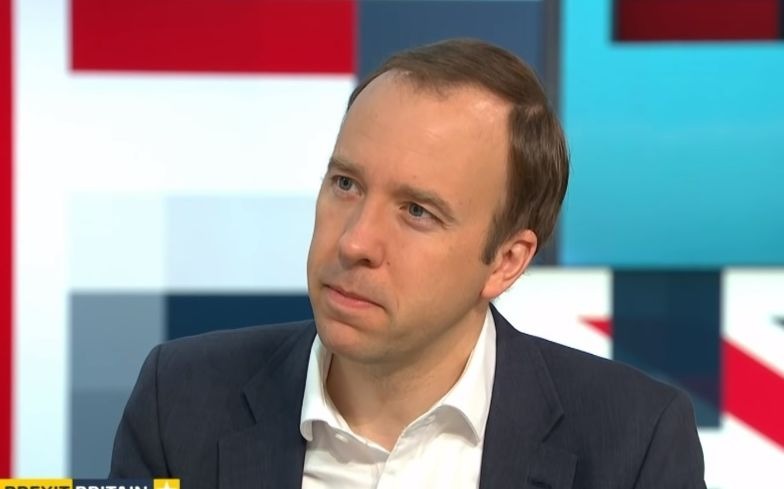
Role: Health Secretary
Constituency: West Suffolk (since 2010)
Health Secretary Matt Hancock is one of the few people from Theresa May’s cabinet to survive the transition into Boris’s. The Health Secretary is a good ally, having voted in favour of LGBTQ rights at every opportunity, and in a position where he can influence policy on HIV.
Hancock also defied a ban from then Foreign Secretary, Philip Hammond, on flying Pride flags on official buildings back in 2015, and said he was “proud” to see the flag flying over the Cabinet Office.
He has also announced plans to make the United Kingdom the first country in the world to have no new HIV cases by 2030.
“HIV and Aids are challenges that we must rise to,” he said. “The injustice, the unfairness, and the sadness they have brought must be tackled by us all.
“My generation grew up knowing Aids was a potential death sentence. That doesn’t have to be the case anymore. Thanks to medical breakthroughs, public health campaigns, breaking down stigma and better education, Aids is no longer a death sentence here.”
Alok Sharma

Role: Business Secretary
Constituency: Reading West (since 2010)
Many reports have shown us the challenges that LGBTQ people face in the workplace, and the person in charge is Alok Sharma, whose record does come under scrutiny for being absent a lot on LGBTQ issues. Although he cast one vote in favour of same-sex marriage, he was absent on the bill’s final reading and for legislation surrounding it, perhaps as in a letter to a constituent he did say he wanted protections for churches.
On a brighter side, Sharma has previously tweeted his support for the Path2Equality campaign.
Liz Truss
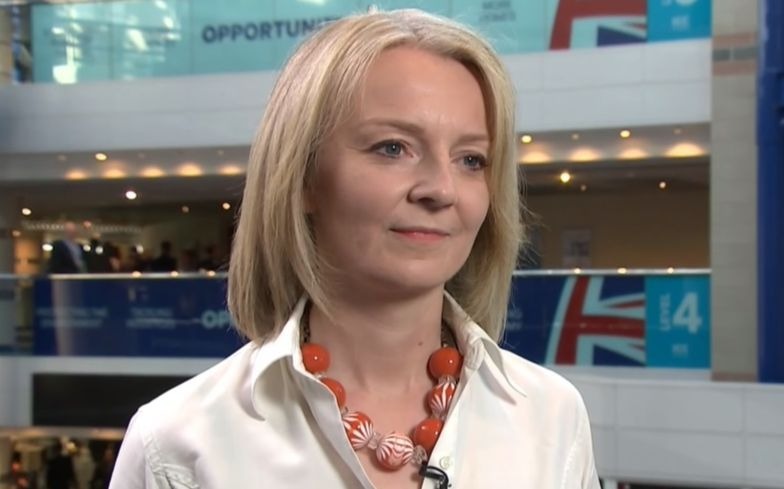
Role: International Trade Secretary / Minister for Women and Equalities
Constituency: South West Norfolk (since 2010)
The woman in charge of chasing trade deals, which could see the UK doing more trade, or beginning trade with, anti-LGBTQ countries doesn’t have an impeccable record.
However, now that she is the new Minister for Women and Equalities, her LGBTQ record is slightly concerning.
Although she always voted in favour of same-sex marriage, she backed the founder of Mumsnet who refused to bans users of the platform for sharing anti-trans sentiment, hailing her approach to free speech.
Thérèse Coffey

Role: Work and Pensions Secretary
Constituency: Suffolk Coastal (since 2010)
Coffey’s predecessor to the role, Amber Rudd, was incredibly supportive of LGBTQ rights, Coffey is the exact opposite of this. Before her appointment, Jacob Rees-Mogg was the only person who opposed legalising same-sex marriage in Northern Ireland, now Coffey has joined those ranks.
But it wasn’t just same-sex marriage in Northern Ireland she opposed, she also opposed it in general. And not only did she oppose it in general, after it was passed in the House of Commons, she wrote to the House of Lords in an attempt to have them block it.
“None of us was elected on a platform to redefine marriage. Genuine concerns about the impact on society’s understanding of marriage and the Bill’s implications for free speech and civil liberty have been swept aside,” she wrote.
She is also an opponent to same-sex inclusive education, vowing in 2010 to “fight” proposals intended to bring it in.
Gavin Williamson
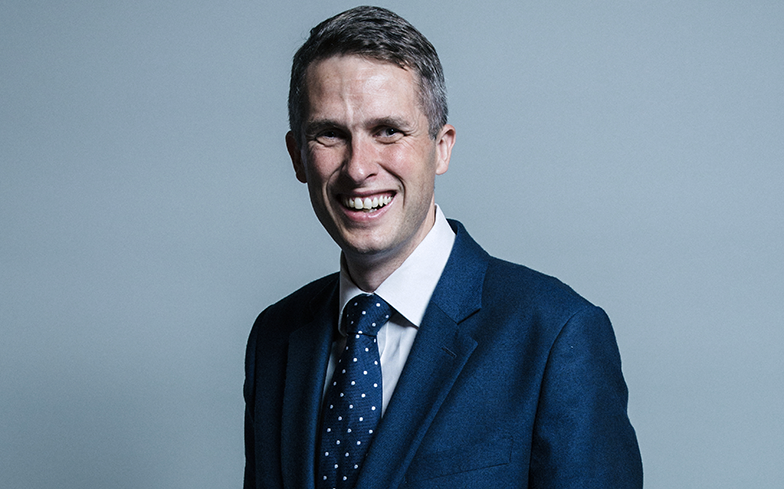
Role: Education Secretary
Constituency: South Staffordshire (since 2010)
Former Education Secretary Damian Hinds vocally backed same-sex inclusive education, and we now know that Williamson will also back schools on this matter.
Williamson consistently voted against same-sex marriage, but his tune has been changing, as he praised the openness of the UK’s military services when it came to LGBTQ acceptance, and he spoke of further acceptance. Earlier this year, he also sought protections for LGBTQ soldiers serving in Brunei. He also tried pushing for reforms to be made so same-sex couples could marry, or enter civil partnerships, while serving in the military.
In a piece for GAY TIMES, he wrote: “We want to be a force for inclusion. Back in 2000, Defence was still trying to put people into boxes that didn’t fit. In 2018 we’re thinking outside the box, leading by example and it won’t just be the LGBTQ community who benefits but our wider Armed Forces and inevitably society as a whole.”
However, some fear that a recent article of his in The Times, pledging that the government will intervene if universities don’t ‘uphold freedom of speech’ could allow anti-trans activists to speak at platforms in which they’d previously been ‘no-platformed’ at.
George Eustice

Role: Environment Secretary
Constituency: Camborne and Redruth (since 2010)
The Environment Secretary won’t have any policies on LGBTQ rights, and this may be a good thing given that George Eustice doesn’t seem to have backed LGBTQ rights. He was absent when it came to same-sex marriage, and voted against legalising it in Northern Ireland.
Defending this vote to Cornwall Live, he said: “In this case, there is a clear constitutional settlement that Northern Ireland and Scotland legislate on matters such as same sex marriage and Westminster should not violate that settlement by imposing its own will. I support the existing arrangements we have on same sex marriage in England and Wales and would not reverse these but I was not willing to undermine the devolution settlement we have by imposing the same on Northern Ireland.”
Robert Jenrick
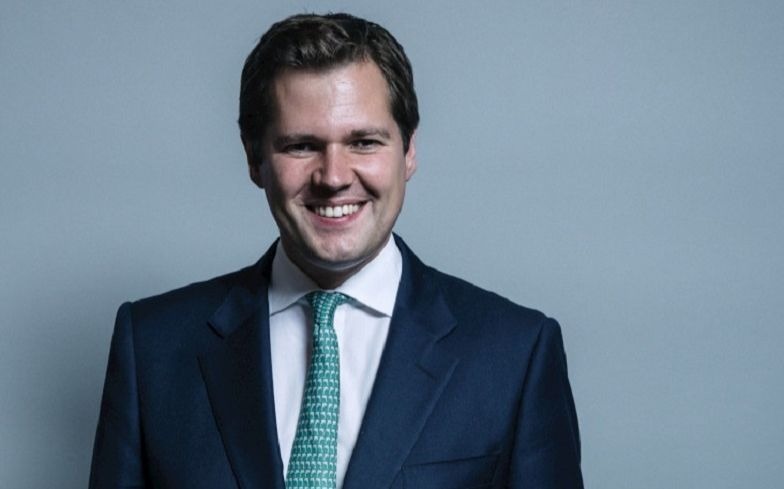
Role: Housing Secretary
Constituency: Newark (since 2014)
With figures showing how 24% of homeless people are LGBTQ, the new Housing Secretary will have to address this issue. However, due to Jenrick’s relative newness to politics, only have been elected in 2014, he doesn’t have much of a record to look at.
He abstained on same-sex marriage in Northern Ireland, although many Conservatives abstained believing the matter was devolved and should be taken by Northern Ireland politicians, and also abstained on backing same-sex inclusive education. Although, talking to Vice he said that he supported the measure, but was unable to vote as he had a “ministerial engagement at HM Treasury.”
Grant Shapps

Role: Transport Secretary
Constituency: Welwyn Hatfield (since 2005)
Again, the Transport Secretary won’t have LGBTQ policy at the helm of his brief. Shapps did vote in favour of same-sex marriage, but was absent on the Equality Act, and voted in favour of the Human Fertilisation and Embryology Bill, which would’ve made it harder for lesbian couples to conceive children through IVF, had it passed.
However, his vote in favour of same-sex marriage only came if churches could refuse to perform the ceremonies. Speaking to the Welwyn Hatfield Times, he said: “We already have civil partnerships and I think that if people want to get married then that’s their business. Provided religious organisations can make up their own mind then I’ll vote in favour.”
Brandon Lewis

Role: Northern Ireland Secretary
Constituency: Great Yarmouth (since 2010)
Although the previous Northern Ireland Secretary, Julian Smith, was a vocal supporter of LGBTQ rights, the new one is a bit a less vocal. Brandon did vote in favour of same-sex marriage, although has absent on votes around subsequent legislation. He has remained silent on other pieces of LGBTQ policy.
Alister Jack
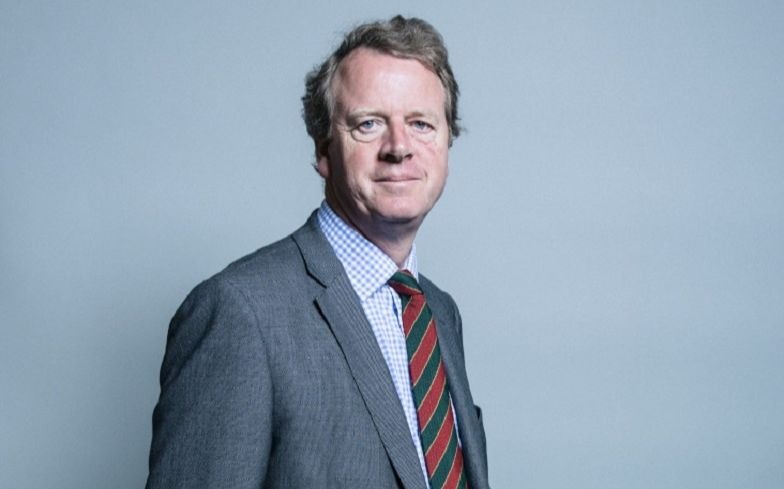
Role: Scotland Secretary
Constituency: Dumfries and Galloway (since 2017)
LGBTQ rights are a devolved matter to Scotland, so Alister Jack won’t be getting a say in policy, and much like Jenrick so far his only voice on LGBTQ equality has been abstaining on the Northern Ireland bill that many Conservatives abstained on, believing it to be a devolved matter.
Simon Hart

Role: Wales Secretary
Constituency: Carmarthen West and South Pembrokeshire (since 2010)
Like Scotland, LGBTQ matters are devolved to the Welsh administrations, and given how Hart voted against same-sex marriage, that’s probably a good thing.
Speaking to the Milford Mercury about his opposition, he said he felt it hadn’t been well considered in terms of the law, adding: “In things like this which make such a huge difference to people on both sides of the argument it should have been in the party’s manifesto before the election.
“I didn’t feel comfortable that we had done things we should have done in the way of consultation. We haven’t put it in the manifesto, we haven’t got consensus from religious groups and churches. I had a huge number of letters from people in the constituency expressing concern and I felt I couldn’t go ahead with it.”
His views have seemed to have changed in recent years, as he did vote in favour of extending same-sex marriage to Northern Ireland.
Baroness Evans of Bowes Park

Role: Leader of the House of Lords
Constituency: N/A, but has had life peerage since 2014
The Leader of the Lords doesn’t have much of a say on LGBTQ rights, and having joined the Lords after the same-sex marriage vote, she hasn’t had a say on LGBTQ rights since.
Oliver Dowden

Role: Culture Secretary
Constituency: Hertsmere (since 2015)
The previous Culture Secretary had a wild ride when it came to LGBTQ rights, eventually settling into an ally position. Whether Oliver Dowden will follow in her footsteps remains to be seen, as he has remained relatively silent on the issue, other than abstaining on whether to extend same-sex marriage to Northern Ireland.
Sport does fall into Dowden’s brief, and with reports highlighting the levels of homophobic abuse in sports like football and rugby, hopefully Dowden will be an ally in helping LGBTQ people feel comfortable both within sporting venues and sport itself.
Anne-Marie Trevelyan

Role: International Development Secretary
Constituency: Berwick-upon-Tweed (since 2015)
Anne-Marie Trevelyan is in charge of who gets foreign aid, and will have powers to restrict aid to countries with anti-LGBTQ policies. She has been fairly silent on LGBTQ rights, only abstaining in a vote on whether same-sex marriage should be extended to Northern Ireland.
Amanda Milling

Role: Chairman of the Conservative Party
Constituency: Cannock Chase (since 2015)
As part of Milling’s role, she will have powers to remove membership of the Conservative Party for people expressing intolerant views, like anti-gay ones. And although her predecessor seemed to be an ally, it’s more difficult to call Amanda one.
She abstained on the vote on whether to extend same-sex marriage to Northern Ireland and in 2017 was one of the Conservative MPs who managed to block reforms to make same-sex sexual and relationship classes mandatory.
Also attending cabinet
Stephen Barclay

Role: Chief Secretary to the Treasury
Constituency: North East Cambridgeshire (since 2010)
As Chief Secretary to the Treasury, Sunak won’t have much says in LGBTQ rights, but Barclay voted in favour of same-sex marriage, even if he has remained silent on other issues within the community.
Speaking to the Ely Standard, a researcher said Barclay had told them on the issue of same-sex marriage: “I am minded to vote with the Government as I feel it is important to allow equality of marriage in this modern age but I reserve judgement until I have heard the arguments from both sides.”
Jacob Rees-Mogg
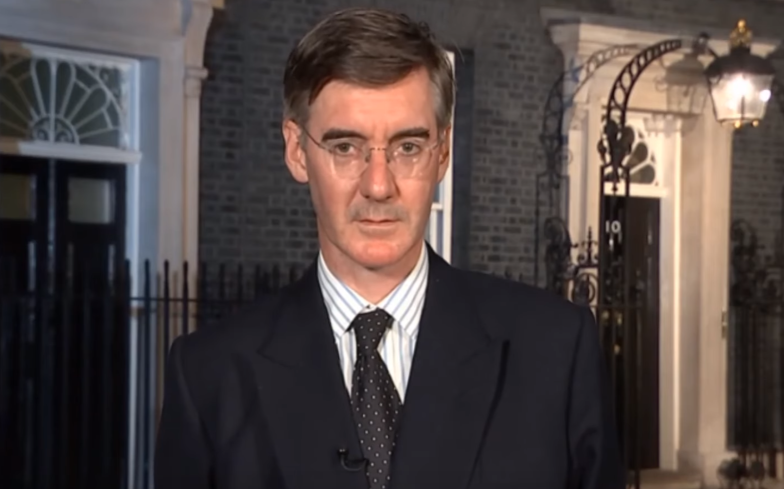
Role: Leader of the House of Commons
Constituency: North East Somerset (since 2010)
Anyone who is aware of Jacob Rees-Mogg, the MP for the 17th century in case anyone was wandering, knows steadfastly he follows the Bible, and thus its teachings on homosexuality.
Jacob voted against same-sex marriage, and unlike some Nicky Morgan who issued an apology over her votes, Jacob has remained steadfast in his views.
On a talkRadio appearance, he was unable to offer a simple yes or no answer when asked whether he had gay friends.
On trans rights, he defended ministers worried that children were being ‘rushed’ saying: “It is unfortunate that others have responded to her comments so aggressively in the hope that they can shut down debate. The point of free speech is that people have to be allowed to say things that you do not agree with.”
He has also promoted videos from the far-right Alternative for Germany, a political party opposed to LGBTQ rights.
Mark Spencer
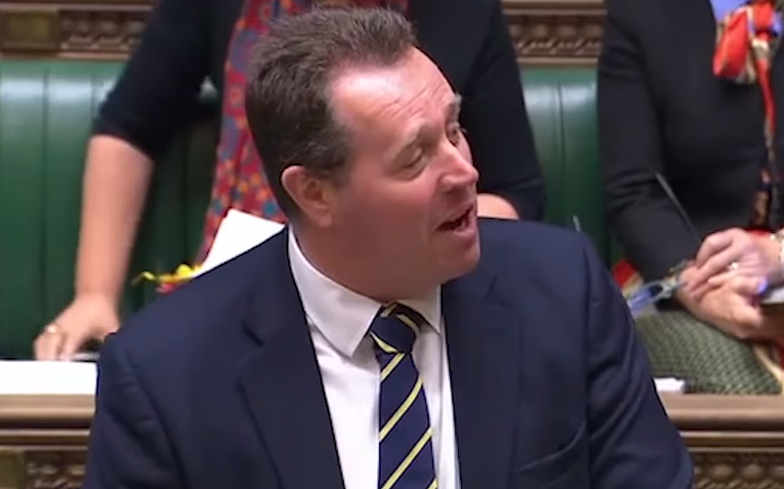
Role: Chief Whip
Constituency: Sherwood (since 2010)
As Chief Whip, Spencer’s job is to do with party discipline, so it’s unlikely he’ll be dealing in any LGBTQ issues.
But when it came to the issue of same-sex marriage, Spencer abstained on all motions relating to it. Speaking to the Hucknall Dispatch, he said he abstained due to being unable to fully represent his constituents’ views. “It is my role to represent the views of my constituency and that becomes very challenging when their views are directly opposed to each other,” he explained.
“On this issue, I found it impossible to represent the views of my constituents as there are some very diverse views. I’ve been subjected to some repulsive and abusive letters and e-mails prior to the vote and made a decision to abstain.”
However, he added: “In truth, I’m disappointed that the government decided to bring this forward as it really has no place interfering in people’s lives. If a committed gay couple want to cement that commitment, it is not my permission to comment.” He also said the vote put churches in a “very difficult position.”
On a slightly better note, in years following the vote he did speak against teachers saying that same-sex marriage was wrong, advising that they should be subjected to anti-terrorist legislation, known as an Extremism Disruption Order (EDO).
In an email to a constituent, he wrote: “The EDOs will not serve to limit but rather to guarantee it [freedom of speech]: it is those who seek to stop other people expressing their beliefs who will be targeted. … The new legislation specifically targets hate speech, so teachers will still be free to express their understanding of the term ‘marriage’, and their moral opposition to its use in some situations without breaking the new laws.
“The EDOs, in this case, would apply to a situation where a teacher was specifically teaching that gay marriage is wrong.”
Suella Braverman

Role: Attorney General
Constituency: Fareham (since 2015)
The Attorney General is someone who interprets the law and gives advice on how to implement it, and Suella isn’t a fully consistent voice when it comes to these matters. Like Amanda Milling, in 2017 she defeated plans to make same-sex sexual and relationships education mandatory, and she voted gasinst plans to introduce same-sex marriage in Northern Ireland.
Defending this vote to Portsmouth News she said she supports same-sex marriage, but felt the matter should have been left to the Northern Irish Assembly. She has also noted the persecutions of the LGBTQ community in countries like Russia and Nigeria in a blog post.
A Conservative commentator praised the appointment of Braverman as she wishes to reform the way that courts and the Crown Prosecution Service works, and that could make it easier for anti-trans comments to pass by lawfully as free speech.


